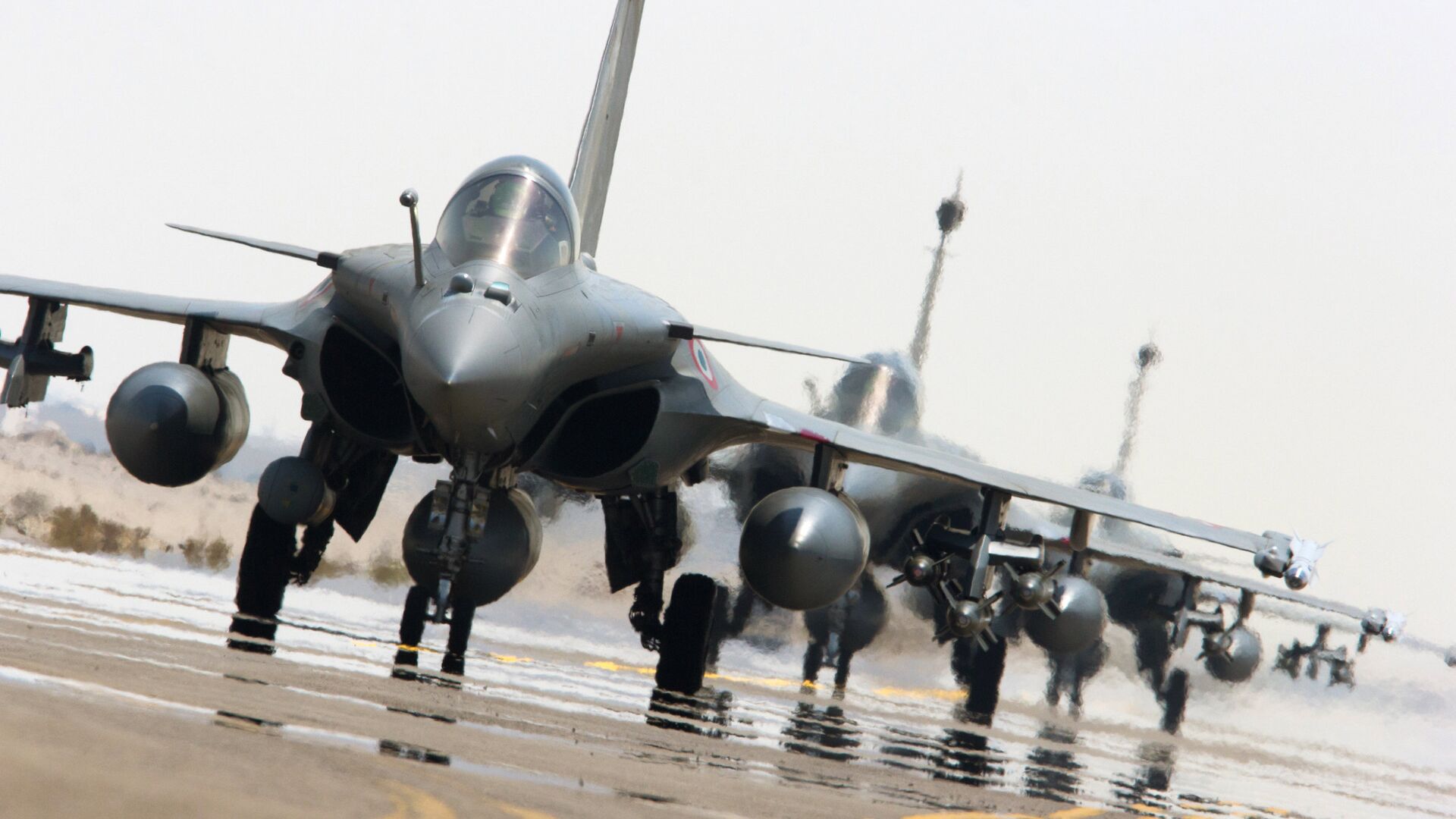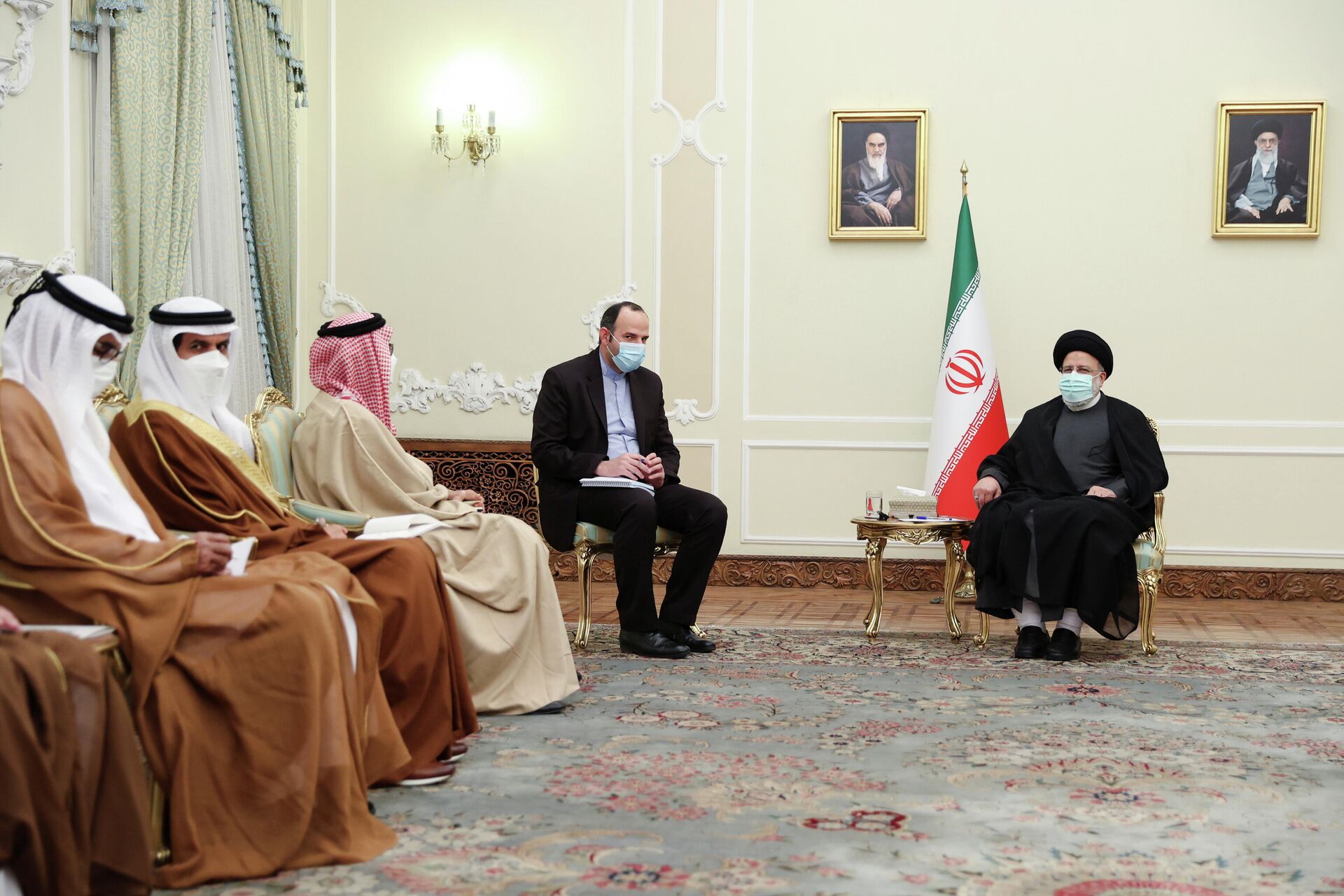Iran Blasts France’s ‘Destabilizing’ Gulf Arms Sales as Emirati Envoy Makes Rare Tehran Visit
19:28 GMT 06.12.2021 (Updated: 10:58 GMT 05.03.2023)

© AP Photo / French Army
Subscribe
The Iranian Foreign Ministry criticized recent weapons deals reached by French President Emmanuel Macron during his recent trip to several Gulf states, labeling them irresponsible and “destabilizing.” The comments come as the United Arab Emirates sends its envoy on a rare visit to Tehran.
“We must not ignore France’s role in destabilizing the region,” Iranian Foreign Ministry spokesperson Saeed Khatibzadeh told reporters during a Monday press conference.
"We expect countries like France to act more responsibly,” he added. “The advanced weapons of European countries, including France, which are selling to the Arab countries of the Persian Gulf are the basis of the tensions we are witnessing in the region."
Macron kicked off his trip to the UAE, Qatar and Saudi Arabia on Friday with a visit to Dubai, where he signed a $19 billion deal to sell the UAE 80 Dassault Rafale fighter jets and a dozen Airbus Caracal multi-purpose helicopters. Ironically, he postured as a peacemaker during his tour, saying he hoped to heal the rift between the Arab Gulf states and Lebanon, where the information minister resigned on Friday after his criticisms of the Saudi-led war in Yemen caused a break with Riyadh in October.
France is one the largest weapons suppliers to Saudi Arabia and the UAE, the latter of which disengaged from Yemen last year, but has retained a powerful influence over the many militias it once armed and funded to fight the Zaidi Shiite Houthi movement.
The seven-year-long war has been waged by intense air bombardment, blockade and proxy forces and has killed almost 400,000 people, but failed to stem the Houthi-led revolt, which began as a rejection of austerity measures and a federalization plan pitched by President Abdrabbuh Mansour Hadi that critics said would amplify poverty in the already-impoverished nation.
Macron has also been criticized for what’s seen as legitimizing that war, as well as the 2018 assassination of Saudi dissident journalist Jamal Khashoggi by his meeting with Crown Prince Mohammad bin Salman on Saturday. He is the first Western leader to visit the kingdom since Khashoggi’s killing and dismemberment inside the Saudi consulate in Istanbul - an operation the CIA concluded was ordered by the crown prince. While he didn’t sell the kingdom any new weapons, Macron did expand their economic cooperation and got bin Salman to speak with Lebanese Prime Minister Najib Mikati.

Iran's President Ebrahim Raisi meets with UAE's top national security adviser Sheikh Tahnoon bin Zayed Al Nahyan in Tehran, Iran, December 6, 2021.
Interestingly, Khatibzadeh’s comments come as Emirati National Security Adviser Sheikh Tahnoun bin Zayed made a rare trip to Tehran on Monday, meeting with Ali Shamkhani, secretary of Iran’s Supreme National Security Council, and Iranian President Ebrahim Raisi.
Dr. Anwar Mohammed Gargash, a diplomatic adviser to the UAE President Khalifa bin Zayed al-Nahyan and former foreign minister, tweeted on Monday that the visit is “a continuation of the UAE’s efforts aimed at strengthening bridges of communication and cooperation in the region and in a manner that serves the national interest.”
“The UAE seeks to enhance regional stability and prosperity by developing positive relations through dialogue, building on the common and managing divergent visions,” Gargash also said. The two countries sit on opposite sides of the Strait of Hormuz, the only entrance to the Persian Gulf, as well as in regional political blocs, including the conflicts in Iraq, Syria, Lebanon, and Yemen.
Last month, Gargash said at the Abu Dhabi Strategic Debate conference the UAE was “deeply concerned about Iran’s behavior in the region, including its ongoing interference in Iraq, Syria, Yemen and Lebanon,” but also said that the monarchy has “taken steps to deescalate tensions, as we have no interest in a confrontation.”
“The whole region would pay the price of such a confrontation for decades to come,” he added.


